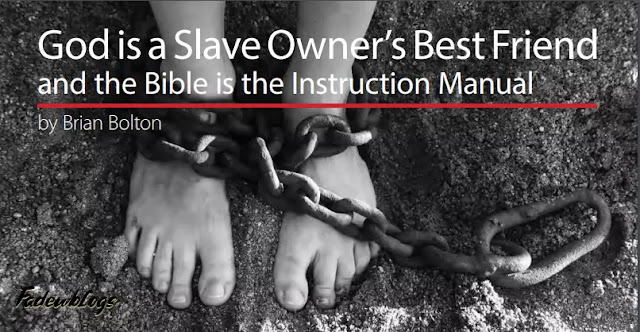Among the Confederate monument controversies that have made national news over the past few years is one in Williamson County, Texas.
I live in the county seat of Georgetown, where the majority of residents hold conservative religious, political, and social views.
One expression of their respect for tradition is the twenty-foot Confederate soldier statue in front of the courthouse. Nearby are a half-dozen additional statues and historical markers recognizing prominent figures.
Like almost everywhere else, the issue at the center of this local controversy is whether the statue insults black citizens by honoring the institution of slavery.
Some assert that the Civil War was really about states’ rights or northern aggression, but the 1861 Texas Ordinance of Secession is clear:
We hold as undeniable truths that the governments of the states and the confederacy were established exclusively by the white race for themselves and their posterity, and the African race was rightfully held and regarded as an inferior race, and in that condition only could their existence be beneficial or tolerable.
Because the 1861 Constitution of Confederate States of America called on the “favor and guidance of Almighty God,” it is entirely appropriate to ask if the God of Judeo-Christian Scripture sanctions the institution of chattel slavery. This article provides a definitive answer to this important question.
━━━━━━━━━━━━━━━━━━━━━━━━━━━━━━━━━━━━━━━━━━━━━━━━━━━
This is the dark side of Jesus the “Prince of Peace.”
━━━━━━━━━━━━━━━━━━━━━━━━━━━━━━━━━━━━━━━━━━━━━━━━━━━
A Brief History of Slavery
The origins of slavery date back to the ancient tribes of our early ancestors who, after fighting and killing each other for many millennia, came to the realization that it would be more advantageous for the conquerors to enslave rather than kill their adversaries.
The economic benefits of a system of forced labor in which one person owns another person became immediately apparent, and the concept was quickly extended to the acquisition of personal servants.
For this reason, the institution of slavery is found among both primitive and advanced peoples. Slavery was common and accepted in classical Greek and Roman civilizations.
In Athens, about fifty percent of its half-million inhabitants were slaves who were essential laborers in the heralded democracy. Prominent citizens like Plato and Aristotle owned household slaves.
The early Christian church tolerated slavery mainly because it was an unavoidable economic necessity. The first influential Christian to condemn slavery was Bishop Gregory of Nyssa in the fourth century C.E. Although he argued that slavery is morally wrong, he did not unambiguously advocate the abolition of the practice.
Following the colonization of the Americas and the opportunity to extract the wealth from the land, Africa became an unwilling labor pool from which millions of people were captured and transported to the new colonies.
In the seventeenth and eighteenth centuries, England maintained a monopoly on the slave trade due to its dominance of the seas.
The first cargo of slaves arrived at Jamestown, Virginia, in 1619, coincidentally the same year that a democratic government was instituted in the colony.
Although they acknowledged the injustice, several eminent U.S. founders, including George Washington and Thomas Jefferson, owned slaves, as did most wealthy landowners, to carry out the extensive labor required on plantations.
By 1850, out of a total population of nine million people in the South, about three million were slaves, most of whom worked on just a few thousand large plantations where cotton was a major crop.
The movement to abolish slavery began in the seventeenth century, and the practice was outlawed in the British Empire in 1833. The abolitionist crusade in the U.S., starting in the 1820s with the emergence of revivalism, demanded immediate freedom for slaves.
It is ironic that abolitionist sentiment had its roots in evangelical Christianity because scripture unequivocally sanctions slavery. In fact, some Southerners argued that abolitionists were defying God’s will by opposing slavery.
President Abraham Lincoln issued the Emancipation Proclamation on January 1, 1863, freeing all slaves in the Southern states. In December 1865, slavery was abolished by the ratification of the U.S. Constitution’s Thirteenth Amendment, followed by the Fourteenth and Fifteenth Amendments, which granted former slaves full citizenship and (if they were male) the right to vote.
There can be no doubt that slavery was an accepted societal institution throughout history up to the early nineteenth century.
Only then did Western nations become sensitive to the moral questions raised by the ownership of humans as acquired property by other people.
━━━━━━━━━━━━━━━━━━━━━━━━━━━━━━━━━━━━━━━━━━━━━━━━━━━
Christian clergy in the South at the time that abolition was gaining strength found justification for slavery in scripture.
━━━━━━━━━━━━━━━━━━━━━━━━━━━━━━━━━━━━━━━━━━━━━━━━━━━
Slavery in the Bible
Ethical concerns about slavery were not a consideration for the compilers of the Hebrew Testament, which contains more than eight hundred references to slaves and servants (these two terms are used interchangeably throughout scripture).
The Genesis stories about Abram, Hagar, Jacob, and Joseph established the framework for the Biblical view of slavery. Additional verses in other Pentateuch books outline the rules that govern the relationship between master and servant.
These are exemplified in the sagas about David and Solomon and their slave laborers in the Histories. It is undeniable that scripture teaches that servants are the property of their owners.
The much shorter New Testament includes about one hundred fifty references to slaves and servants. Obviously, it would not be feasible to review every mention here.
It’s also not necessary because there is never any condemnation of the institution of slavery, and Christians today are primarily concerned with the declarations about slavery issued by Jesus, Paul, and Peter.
Therefore, only a few major slavery episodes in the Old Testament are cited. God’s rescue of the ancient Israelites from enslavement in Egypt is the foundational event in early Hebrew history, creating the basis for the covenant between God and his chosen people.
The Exodus story concludes with the delivery of the Ten Commandments by Moses at Mount Sinai, along with detailed guidelines to instruct the Israelites, who were once slaves themselves, on how to be masters to their own slaves (see the Ten Commandments for Slave Masters at the end of the article).
━━━━━━━━━━━━━━━━━━━━━━━━━━━━━━━━━━━━━━━━━━━━━━━━━━━
Jesus never criticized nor condemned slavery, and he did not forbid people from owning slaves.
━━━━━━━━━━━━━━━━━━━━━━━━━━━━━━━━━━━━━━━━━━━━━━━━━━━
With this unequivocal background, there can be no doubt that God the Father approved of the institution of slavery, and his son and spokesmen continued the tradition. Jesus’ approval of slavery is readily apparent in his inclusion of servants and their masters in eight of his parables (see the summaries on the later part).
Because he never criticized nor condemned slavery, and he did not forbid people from owning slaves, he tacitly endorsed the practice.
━━━━━━━━━━━━━━━━━━━━━━━━━━━━━━━━━━━━━━━━━━━━━━━━━━━
Five slave parables are noted for their extreme violence through murder, killing, or maiming.
━━━━━━━━━━━━━━━━━━━━━━━━━━━━━━━━━━━━━━━━━━━━━━━━━━━
In one of these parables, he explicitly authorized the cruel master-slave relationship when he recommended whipping disobedient slaves: The servant who knows the master’s will and does not get ready or does not do what the master wants will be beaten with many blows.
But the one who does not know and does things deserving punishment will be beaten with few blows.
From everyone who has been given much, much will be demanded; and from the one who has been entrusted with much, much more will be asked (Luke 12:47-48).
Five of the eight slave parables are noted for their extreme violence through murder, killing, or maiming with phraseology including:
- delivered him to the torturers
- cut him in two, grind him to powder
- cast him into outer darkness
- weeping and gnashing of teeth
- beaten with many stripes, and
- slay them before me.
- kingdom of heaven
- my heavenly Father
- kingdom of God, and
- beloved son.
━━━━━━━━━━━━━━━━━━━━━━━━━━━━━━━━━━━━━━━━━━━━━━━━━━━
Some argued that abolitionists were defying God’s will by opposing slavery.
━━━━━━━━━━━━━━━━━━━━━━━━━━━━━━━━━━━━━━━━━━━━━━━━━━━
━━━━━━━━━━━━━━━━━━━━━━━━━━━━━━━━━━━━━━━━━━━━━━━━━━━
The Bible that condoned slavery back then is the same Bible used today.
━━━━━━━━━━━━━━━━━━━━━━━━━━━━━━━━━━━━━━━━━━━━━━━━━━━
Implications
━━━━━━━━━━━━━━━━━━━━━━━━━━━━━━━━━━━━━━━━━━━━━━━━━━━
Scripture teaches that servants are the property of their owners.
━━━━━━━━━━━━━━━━━━━━━━━━━━━━━━━━━━━━━━━━━━━━━━━━━━━
Epilogue
━━━━━━━━━━━━━━━━━━━━━━━━━━━━━━━━━━━━━━━━━━━━━━━━━━━
Jesus’ Eight Slave Parables
- 1. Unmerciful Servant [Matthew 18:23-35]
- 2. Wicked Tenants [Matthew 21:33-46, Mark 12:1-12, Luke 20:9-19]
- 3. Wedding Banquet [Matthew 22:2-14]
- 4. Unfaithful Servant [Matthew 25:45-51, Luke 12:42-48]
- 5. Talents/Minas Matthew [25:14-30, Luke 19:11-27]
- 6. Watchful Servants [Mark 13:32-37, Luke 12:35-40]
- 7. Great Banquet Luke 14:15-24
- 8. Master and His Servant [Luke 17:7-10]
━━━━━━━━━━━━━━━━━━━━━━━━━━━━━━━━━━━━━━━━━━━━━━━━━━━
The Ten Commandments for Slave Owners
- If you buy a Hebrew slave, he is to serve you for six years. But in the seventh year, he shall go free, without paying anything (2).
- If he is bought alone, he is to go free alone. But if he has a wife when he’s bought, she is to go with him (3).
- If his master gives him a wife and she bears him sons or daughters, the woman, and her children shall belong to her master, and only the man shall go free (4).
- But if the servant declares, “I love my master and my wife and children and do not want to go free” then his master must take him before the judges. He shall take him to the door or the doorpost and pierce his ear with an awl. Then he will be his servant for life (5-6).
- If a man sells his daughter as a slave, she is not to go free as male slaves do. If she does not please the master who has selected her for himself, he must let her be redeemed. He has no right to sell her to foreigners because he has broken faith with her (7-8).
- If he selects her to be his son’s wife, he must grant her the rights of a daughter (9).
- If the son takes on another wife, he must not deprive the first one of her food, clothing, or marital rights. If he does not provide her with these three things, she is to go free, without any payment of money (10-11).
- Anyone who beats their male or female slave with a rod must be punished if the slave dies as a direct result, but they are not to be punished if the slave recovers after a day or two, since the slave is their property (20-21).
- A slave who goes blind in one eye from being punched by their master is to be freed as compensation for the eye. The same goes for an owner who knocks out a tooth, and this applies to male and female slaves (26-27).
- If a slave (male or female) is gored by a bull, the bull’s owner must pay the slave’s owner thirty shekels, and the bull must be stoned to death (32).
━━━━━━━━━━━━━━━━━━━━━━━━━━━━━━━━━━━━━━━━━━━━━━━━━━━
By Brian Bolton


